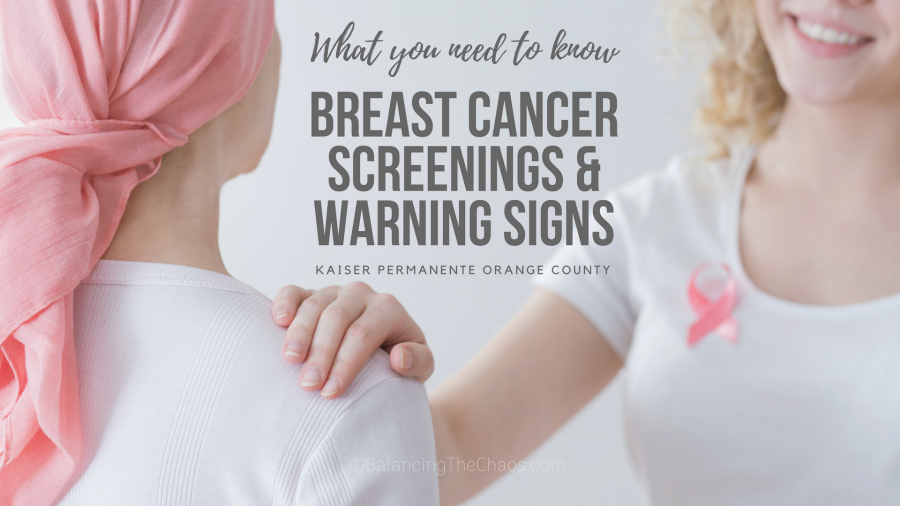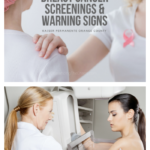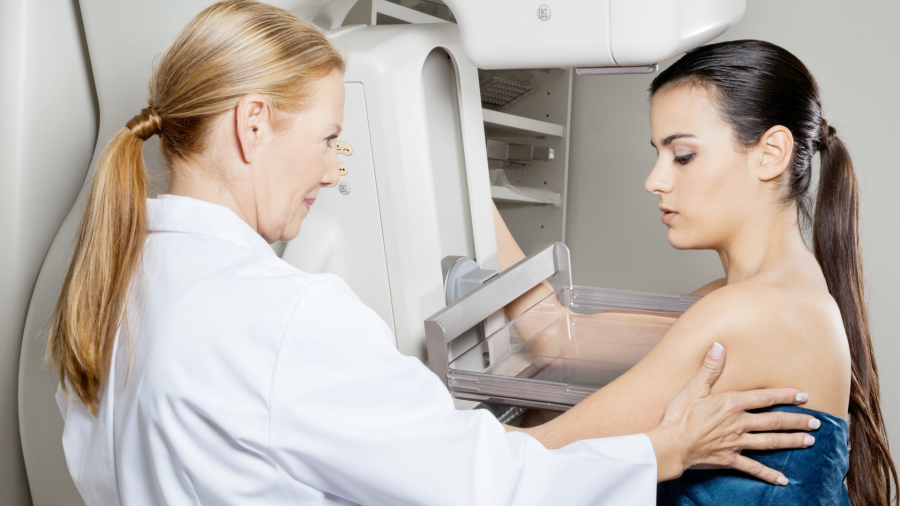 Now that I’m over 40, I know that I need to be checked for breast cancer regularly. As shared by the CDC, most beast cancers are found in women who are 50 years or older. There are so many debates in the medical community regarding what age women should begin breast cancer screenings, and how often they should have mammography checks. In speaking with Dr. Nicte Flores, Obstetrics & Gynecology at Kaiser Permanente Orange County, she clarified many of the questions I had regarding breast cancer screenings and shared what key warning signs women should look for.
Now that I’m over 40, I know that I need to be checked for breast cancer regularly. As shared by the CDC, most beast cancers are found in women who are 50 years or older. There are so many debates in the medical community regarding what age women should begin breast cancer screenings, and how often they should have mammography checks. In speaking with Dr. Nicte Flores, Obstetrics & Gynecology at Kaiser Permanente Orange County, she clarified many of the questions I had regarding breast cancer screenings and shared what key warning signs women should look for.
How often should a woman conduct a self-breast exam at home?
Dr. Flores of Kaiser Permanente Orange County shared that women should be conducting monthly self-breast exams, preferably one week after their menstrual cycle, and that there are several ways to do it. She shared her preferred methods:
- Lollipop Swirl: Feel around the breast, under the arm and around in a circular fashion in towards the nipple, making sure you go around and above the entire breast.
- Wheel: Like a wheel, start from nipple and go out, feel every part of the beast.
What are you looking for during a self-breast exam?
Dr. Flores said that women should continue monthly self-breast exams to get to know themselves. While each woman is different, once they are familiar with how their breasts feel, they should be looking for the following:
- New bumps or lumps that were not present before
- Pain – if there is pain in a particular area, when a majority of the time there is no pain, be sure to check that area for any lumps. *New pain that is associated with menstrual cycle pain.
When should woman begin having mammograms? How often should they be scheduled?
This is a tough question to answer. The U.S. Preventative Services Task Force updated their recommended guidelines in 2009, for women under the age of 50, that it is a decision to be made between the patient and doctor on biennial breast cancer screening. In speaking with Dr. Flores, she recommends two alternatives to her patients once they reach the age of 40:
- Annual screenings: A yearly screening will enable the physician to catch breast cancer earlier, which will in turn require a less aggressive treatment.
- Biennial screenings: Screenings every two years, which reduces lifetime radiation exposure and less anxiety of false positive test results. A false positive test result is when a radiologist sees an abnormality on a mammogram, however no cancer is present.
If a woman has a history of beast cancer in her genealogy, what are the chances she will also develop breast cancer?
A woman’s risk of breast cancer due to heredity depends on the age of the relative that was diagnosed and if they are an immediate family member or farther down the family line. If a woman’s test results show the presence of the BRCA1 and BRCA2 gene, they are certainly at a higher risk of developing breast cancer and should speak with their physician and a geneticist to discuss risks and options.
What are other breast cancer risk factors?
- Your age
- Your history of cancer
- Family history
- Weight
- The age in which you had children
- Breast feeding
- Age which you started/ended menstrual cycle
- Smoking/alcohol
What are some of the ways we can prevent breast cancer?
- Maintain a healthy weight with a balanced diet and exercise
- Do not smoke
- Limit alcohol intake
- Perform monthly self-breast exams
- Regular mammograms
- Breast feed
- Limit hormone replacement
- Decrease stress and anxiety
After speaking with Dr. Flores, I feel more confident about my decision to have annual mammograms now that I’m 45 years old. As a matter of fact, I immediately scheduled my next mammogram after getting off the phone with her since I am a few months overdue on my next appointment.
It’s great that a health care provider like Kaiser Permanente Orange County and their physicians, go beyond simply offering health insurance coverage. They become a families’ health care partner. Whether explaining the nitty-gritty on how to read plan coverage, to sharing what to expect at doctor’s visits, to making sense of the latest in health care news, they’re a great source of information for moms and families. As a Kaiser member, you’ll have the ability to select from many services such as: primary and urgent care, emergency facilities, labor and delivery, pharmacy, and lab all housed under one roof. The ability to choose your own doctor based on their specialty is an added bonus. Additionally, when you register through kp.org you can view most lab results, email your doctor’s office non-urgent questions, schedule and cancel routine appointments, and even manage a family member’s health. Find out more today at: kp.org/orangecounty.
Connect with Kaiser Permanente via social media, visit Facebook or Twitter.







